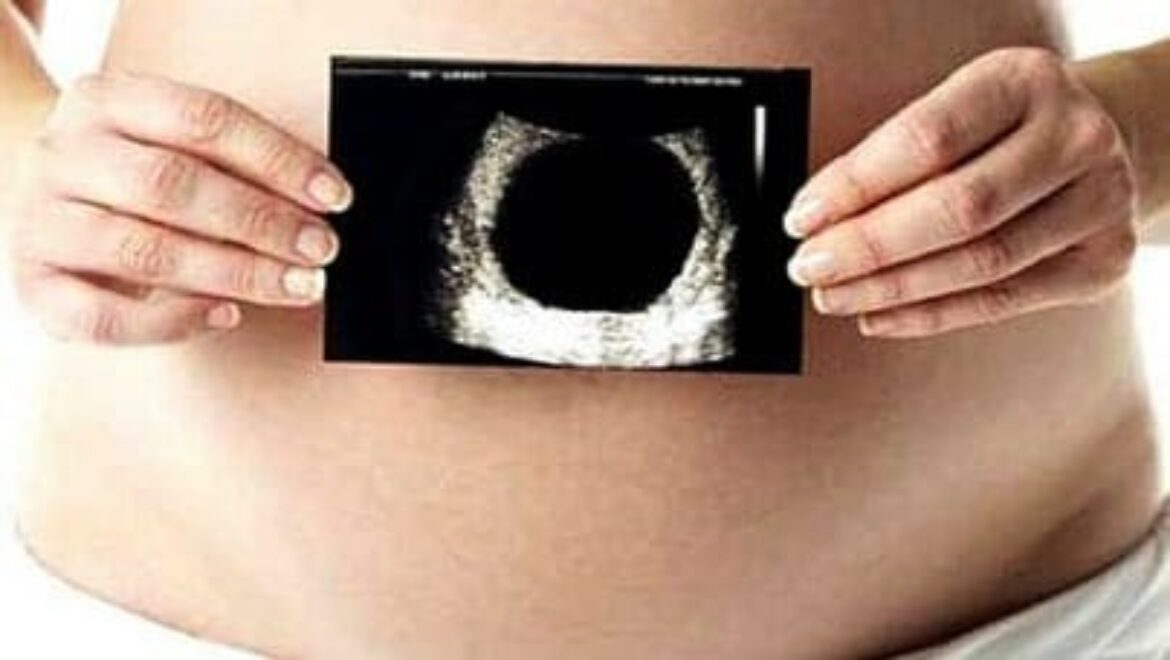
What is a Blighted Ovum?
Even though a blighted ovum is a very common form of miscarriage affecting up to 20% of all known pregnancies, most women have not heard of it until they actually experience it.
A blighted ovum is a fertilized egg that implants itself to the uterine wall as usual, but for some reason does not continue to develop into an embryo or fetus.
Often, this results in a “silent” miscarriage, with the woman passing the fertilized egg early in the pregnancy.
This is can be mistaken for normal menstruation, or even a late period.
Other times you may hear it called a missed miscarriage which is normally not discovered until a bit later in the pregnancy.
Blighted Ovum Symptoms
In some cases though, the woman’s body treats the fertilized egg as a normal pregnancy for a period of time, producing the same hormones and causing the same symptoms typical of any pregnancy.
A gestational sac and even a placenta can develop and blood and urine pregnancy tests are clearly positive.
Barring any symptoms, a progressed blighted ovum is often discovered by ultrasound with the discovery of an empty gestational sac.
Obviously, this can be a devastating blow to a woman who has had no indication that there was a problem with her pregnancy.
What Causes a Blighted Ovum?
About half of all miscarriages during the first trimester are caused by a blighted ovum.
Blighted ovum causes are often not found out, but chromosomal problems with the fertilized egg (zygote) are usually the culprit.
An error in the chromosomes of the zygote may spontaneously lead to a miscarriage.
Chromosomal disorders are usually the result of errors in cell division that produced the egg or sperm resulting in either an absent chromosome or an extra chromosome.
A Blighted Ovum is not a Phantom Pregnancy
Because the fertilized egg does not develop into an embryo, people often confuse a blighted ovum with a phantom pregnancy. This can be a very hurtful mistake to a woman who is suffering the loss of a child.
It is important to remember that a blighted ovum is a miscarriage.
The woman wasn’t pretending to be pregnant or imagining that she was pregnant.
She was actually pregnant.
Conversely, a phantom pregnancy (also known as a pseudo-pregnancy, false pregnancy or hysterical pregnancy) is an exceedingly rare condition that generally has psychological roots.
Although it can also be caused by some cancers and hormonal imbalances.
In a phantom pregnancy, a woman or very rarely a man, experiences the symptoms of pregnancy without ever being biologically pregnant.
While a blighted ovum will inevitably end in a miscarriage, a phantom pregnancy can continue through pseudo-labor.
The difference is women experiencing a phantom pregnancy are not biologically pregnant and the end of the phantom pregnancy is not a miscarriage.
Both conditions can be extremely emotionally traumatic, but assuming a woman who has miscarried was never pregnant and is not grieving a “true loss” is doubly painful.

Opting for a D & C
The choice of whether or not to have a D&C (dilation and curettage) after the diagnosis of a blighted ovum is often heart-wrenching.
Unfortunately, the choice is most often presented immediately after finding out that you aren’t going to have the baby you may have already bonded with and love.
There is no easy way to say this but if you are being offered the choice of a D&C, you have already miscarried.
Most of the time, a woman’s body will complete the miscarriage naturally without serious complications and without the need for intervention.
Often this is often the safer way as well, as it avoids any possible surgical complications from a D&C.
If you are over 10 weeks pregnant, however, there is a risk that your body will not completely empty your uterus on its own.
In addition, some women opt for a D&C for emotional reasons, such as complete closure or a fear of enduring a miscarriage on their own.
Either way, both the physical and emotional toll and the risks and benefits of a D&C should be discussed with your physician.
Dealing with the Emotional Impact of a Blighted Ovum
Pregnancy after a blighted ovum is perfectly possible in the vast majority of cases. Most doctors recommend giving your body three months to heal before conceiving again.
Even with this knowledge, however, many women who go through a miscarriage understandably go through stages of grief with the loss.
If you take nothing else away from this article, I pray that you understand this:
A blighted ovum is not your fault.
You didn’t cause this.
There was nothing you could have done differently to prevent this.
This is not a punishment for anything you did or didn’t do.
In the same vein, whatever you may be feeling or not feeling is completely right and completely your own.
Some women seem to suffer little trauma after a blighted ovum.
This doesn’t make them unfeeling and they shouldn’t have to suffer any guilt for someone’s opinion that they aren’t “grieving enough.”
Other women may suffer deep prolonged depression. Likewise, they also shouldn’t have to deal with the stigma of “grieving too much.”
I wish so much that I could directly address the emotions of each woman who reads this, but honestly I don’t know exactly what each of you are feeling right now.
No one does but you and I am so sorry for that.
If you are hurting though, please reach out to someone you know and trust.
You may not think talking about it will help, or you might feel like you have talked about it so much that there is nothing left to say.
If you are still in pain, there IS more to say and there IS someone who will listen. If you feel alone, there is no shame at all in talking to a professional if you feel like you are somehow burdening those close to you.
Otherwise, our best advice is to go easy on yourself. Don’t think you should feel a certain way if you don’t.
Give yourself the time you need to grieve, however long that is for you.
You are not being selfish by taking the time you need to take to cope with your very real loss. If you can, lean on your partner a bit too.
Sometimes we forget that our men suffer the loss of a child with a miscarriage too. Sometimes sharing your pain with another person in pain somehow makes it less for both of you.
Finally, if you ever feel the pain of losing your pregnancy because of a blighted ovum is too much and you can’t move forward please seek out a crisis worker immediately.
In the U.S. you can call 1-800-273-8255. The line is open 24 hours a day, every day of the year.
In the UK the Miscarriage Association provide a helpline on 01924 200799 from 9 am – 4 pm Monday to Friday.
Sources:
- https://healthresearchfunding.org/blighted-ovum-statistics/
- https://www.avawomen.com/avaworld/blighted-ovum/
- https://en.wikipedia.org/wiki/Blighted_ovum
- https://www.webmd.com/baby/false-pregnancy-pseudocyesis#1
- https://americanpregnancy.org/pregnancy-complications/blighted-ovum/
- https://www.mayoclinic.org/diseases-conditions/pregnancy-loss-miscarriage/expert-answers/blighted-ovum/faq-20057783
